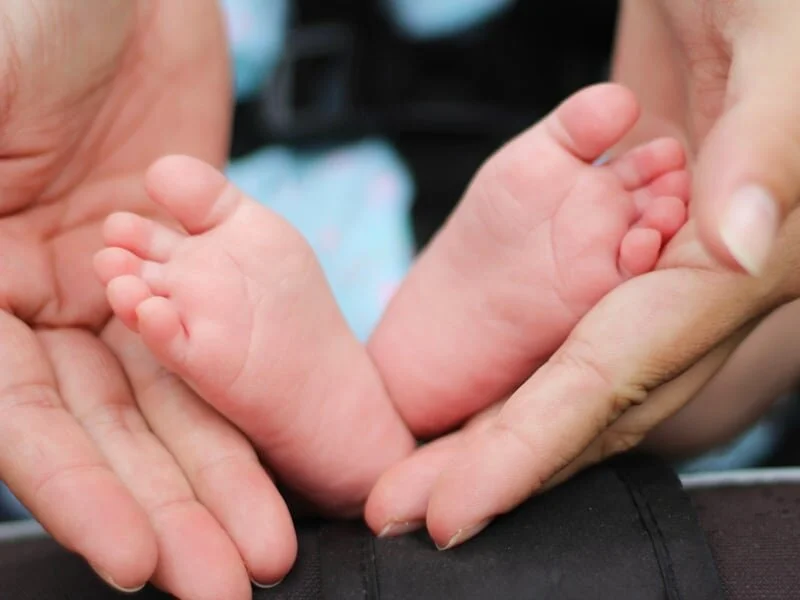The 7 Lies I Used To Believe About Being A Parent
Here’s a quick question for you…..
If you were offered a job, but they stressed that the job did not come with a manual, nor would they provide you with any training whatsoever, that although it would prove to be the most rewarding role you could imagine, should anything negative happen whatsoever, you would always feel that you were to blame and that lastly, if you accepted the role, it would be a role for life, you could never ever resign or walk away. Would you accept the role or would you run for the hills? Yet, this is the reality when we become a parent.
Here are 7 lies I used to believe about being a parent.
The Truth About Struggling With Parenthood
Parenthood is not as the media portrays.
The magazine images of blissfully happy couples, with their healthy, perfect, bonny babies are totally inaccurate and dangerously misleading. The reality is one of stitches, excruciating nipples, a zombie-like existence of sheer exhaustion and sleep deprivation, clothes (or probably your PJs because you are too tired to get dressed!) regularly covered in baby sick, a house full of paraphernalia you didn’t even know existed, and you and your partner snapping at each other because you both desperately need some sleep - to name but a few!
The glossy images only cause us to feel despondent; that we are failing. You are NOT failing!
Despite what we are led to believe, breastfeeding is not always the most natural thing in the world.
With my first son, it proved the most painful and upsetting experience I could have imagined. I desperately wanted to feed him and although I tried for almost 13 weeks, watching him lose bodyweight, scream for more food after a feed, and generally fail to thrive, proved too worrying for me to stubbornly, and perhaps selfishly, continue.
I will never forget the day I gave him what I thought was “a full feed” only for him to continue to be unsettled and fractious and so reluctantly made up a bottle just to ‘see if that would help’. My tiny baby downed the lot and slept like he had not previously slept in his short life. I cried ……. but took huge comfort in the knowledge that I had tried my very best but must now put his needs before mine.
My second son was totally different - feeding him did feel more natural and much easier. Every child and every experience is different. We can only do what is right at the time and we mustn’t beat ourselves up over it.
It’s not a race or competition.
Your child will hit each milestone, but only when they are ready, not when you hope they will, or when the textbooks state they should. Comparison with other children’s achievements is a complete waste of time and emotion. It changes nothing but adds huge pressure and expectations. Be reassured, your child will one day sleep through the night, use a toilet, and read and write - the child knows it’s not a race or competition, we just have to remind ourselves of that as parents.
We cannot always be perfect!
Many of us aim to be the ‘perfect parent’ but it is an impossible goal. A healthier approach is to show our vulnerability, emotions, likes and dislikes, insecurities and weaknesses whilst at the same time demonstrating to our children that we are trying to work on them, learn, grow and improve. This way we lead from the front, enabling our children to have imperfections and flaws but teaching them through example that we are not fixed and that we can all strive for growth and improvement.
It’s Normal To Make Mistakes
Despite feeling you should have all the answers, always know what you are doing, and be certain what is best for your child - you absolutely won’t, and you WILL make mistakes. Humans make mistakes, that’s how we get better at things. I know I have made many along the way and if I could take the clock back, there are so many things I would do differently. My boys are now 16 and 18 years of age, and teenagers bring different challenges. As they grow, we grow as parents - oh ……. and let’s face it, none of the parenting books wrote a chapter on “How To Parent Through A Pandemic!”
‘Whatever happens, it will be your fault’ - WRONG!!!
At times I was a very unpleasant teenager, and I gave my Mum some really tough moments. But I can truly say that none of those difficult times her fault, they were me trying to flex my wings, find out who I was, find my place in the world and whilst she (and Dad) must have lost many a night’s sleep worrying about my welfare, I was blindly unaware of how difficult that must have been.
Her attempts at trying to keep me safe, clip my wings, and reign me in, only served to make me more determined and rebellious but that was totally my doing. She was learning as she went along in exactly the same way as I and each and every one of us has to as a parent. We do and say what we think is right at the time, coming from a place of love and caring, and we can only hope that by providing plenty of safety and security, our children will come out the other side in one piece, as a well adjusted and happy adult. We need to give ourselves a pat on the back sometimes, and celebrate the fact that we are doing our very best.
It is not always “happy families” and complete harmony. In fact, it shouldn’t be.
Teenage angst is a necessary stage that teenagers (and their parents) have to go through in order to prepare them to fly the nest. Scientist discovered a new species of moth. Being large in size, it was not surprising that the cocoons were also very large. What was intriguing though was that the cocoon was incredibly hard, almost concrete-like. The scientist worried that surely the moth would be unable to get out, and so set about helping them by chipping away at the shell and creating an opening. The result shocked the scientists - the moths were unable to fly. By not pushing and struggling to free themselves, they had been deprived of the opportunity to prepare and strengthen their wing muscles at a critical stage of development.
I believe this is exactly the same as the teenage years. The fighting, locking of horns and rebellious behaviours are necessary to strengthen ‘the youngster’s wings’ ready for his or her ultimate departure from the nest. It also really helps the parents to feel mentally ready to let them go - it is a natural breaking away.
Once they move out, the relationship dynamic changes again and becomes much closer, happier, and more equal. So next time your teenager shouts, “I hate you” or, “It’s not fair, all my friends are allowed” take comfort in the knowledge that it’s a sign that you are doing your job right, that it is normal, and that it will get a million times better, very soon. There is daylight at the end of the tunnel and you are definitely not alone.
Thanks for reading!
If you enjoyed this article feel free to share on social media and spread some positivity.
For further information or to contact Dawn, visit www.milestone-coaching.co.uk



